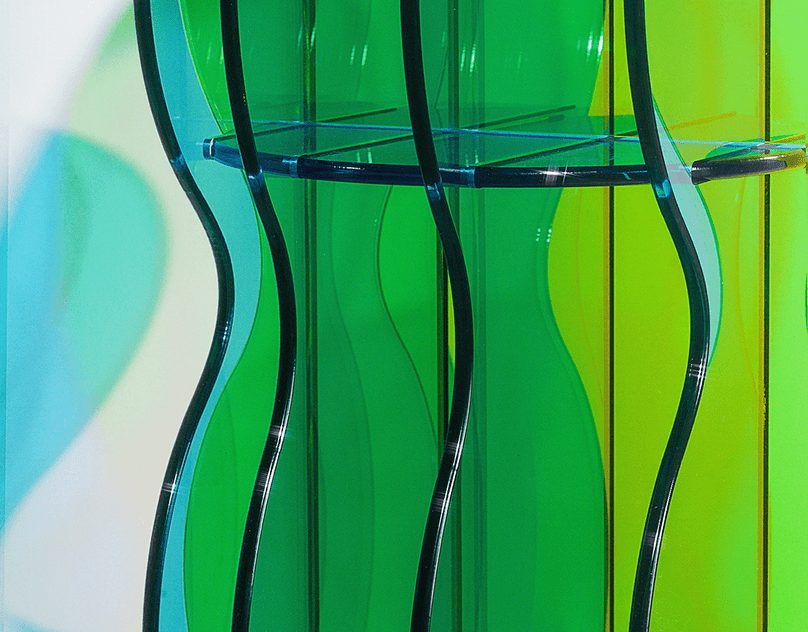The Repetition and System: Philosophical Reflections on Ulises Studio’s Works
The Repetition and System in Ulises Studio’s Work
Exploring Harmonious Composition
In his digital works, Ulises Studio offers a refreshing artistic vision showcasing repetition and system. He does this through a composite image of white golf carts traversing lush, saturated fields. Embedded in these images is Ulises Studio’s work on repetition and system. These carts, moving without drivers, follow silent and consistent tracks in a row. This creates a mesmerizing and tranquil scene. This work evokes in the viewer’s mind the idea of perfect coordination intersecting with the concept of repetition that instills comfort and reassurance.
The Surreal Ballet and Tension of Repetition
However, this work is not just about superficial beauty. It extends to include the surreal ballet seen in the movement of the carts. It reflects the idea of continuous repetition, which enriches the concept of system and coordination. This shows how Ulises Studio’s work considers repetition and system. Through this repetition, a philosophical tension arises between aesthetic harmony and existential anxiety. This raises questions about the deeper meanings behind these recurring patterns.
Surreal Control and Doubt in Systems
Speculative Worlds and Contemplation of Truth
Ulises Studio continues to explore the concepts of surreal control and speculative worlds. Through this work, the studio invites viewers to question the systems we follow. These inquiries are central to Ulises Studio, exploring repetition and system. The golf carts, moving along predetermined paths, prompt inquiries into our daily lives and the habits we practice unconsciously.
Systems and Habits: Freedom or Constraint?
Although these works appear smooth and calm, their intellectual backgrounds suggest that the systems we follow are not always products of free will. Instead, they are part of a repetitive routine, exemplified in Ulises Studio’s process of creating rhythmic art using repetition and system. This is reflected in the movement of the carts across the fields.
Contemplation of Inner Worlds and Familiar Rituals
Daily Rituals and Their Impact on Consciousness
The work serves as an invitation to assume that these precise, repetitive movements reflect the rituals we perform daily without noticing. These rituals, resembling the loops of the carts, force the viewer to contemplate their role in shaping our inner reality. Every movement highlights Ulises Studio’s focus on system and repetition in his artwork. They are not merely repetition; they become part of our familiar lives. This creates a tension between aesthetic satisfaction and the philosophy hidden behind them.
The Strange Conformity: Reflection on Routine and Philosophical Direction
The Deep Structures of Routine
At its core, the project reflects the deep structures of the routines and alignments we engage in daily. It presents these structures through a central philosophical statement that raises a fundamental question: “In the garden of order, not all harmony is freedom.” This statement highlights the idea that the system in which we live may appear harmonious. However, in reality, it could be highly restrictive, resonating with Ulises Studio’s focus on repetition and system. We follow the lines drawn before us for so long without realising that we might be wrong in our search for meaning. Often, the ideal paths are the most confusing because they rarely pose the questions that can stimulate our thinking.
Conformity as Seduction, Not Suppression
Through this reflection, Ulises frames the work as a study in conformity. This conformity is not understood as suppression, but as seduction. Harmony becomes part of an allure that makes us accept directions without deep reflection. In the world of curious conformity, synchronised movements and comforting patterns become attractive. Yet, beneath this soothing surface, Ulises Studio’s art captures repetition and system, raising crucial questions: Who sets these lines? And why do we follow them?
Loops and Patterns: Between Comfort and Anxiety
Patterns as a Symbol of Obedience
Conformity continues in the work to become symbolic landscapes of obedience, where movements merge into a continuous pattern. This superficially hides calmness and control. There is no clear beginning or end in these harmonious fields, making the scene appear as though it is an endless development, caused by the repetition and system ingrained in Ulises Studio’s work. This lack of reference points deepens the sense that what we are witnessing is not merely a normal sequence of events. Instead, it is a symbolic process of following imposed patterns.
Visual Pleasure and Conceptual Tension
In this context, Ulises Studio integrates speculative designs and digital animations to blur the boundaries between visual pleasure and conceptual tension. This intersection creates a kind of visual magic that collides with quiet intellectual disruption. This makes the work enchanting yet simultaneously filled with philosophical questions that prompt the viewer to reconsider their behaviour towards the systems they follow and the role of repetition and system in Ulises Studio’s creations.
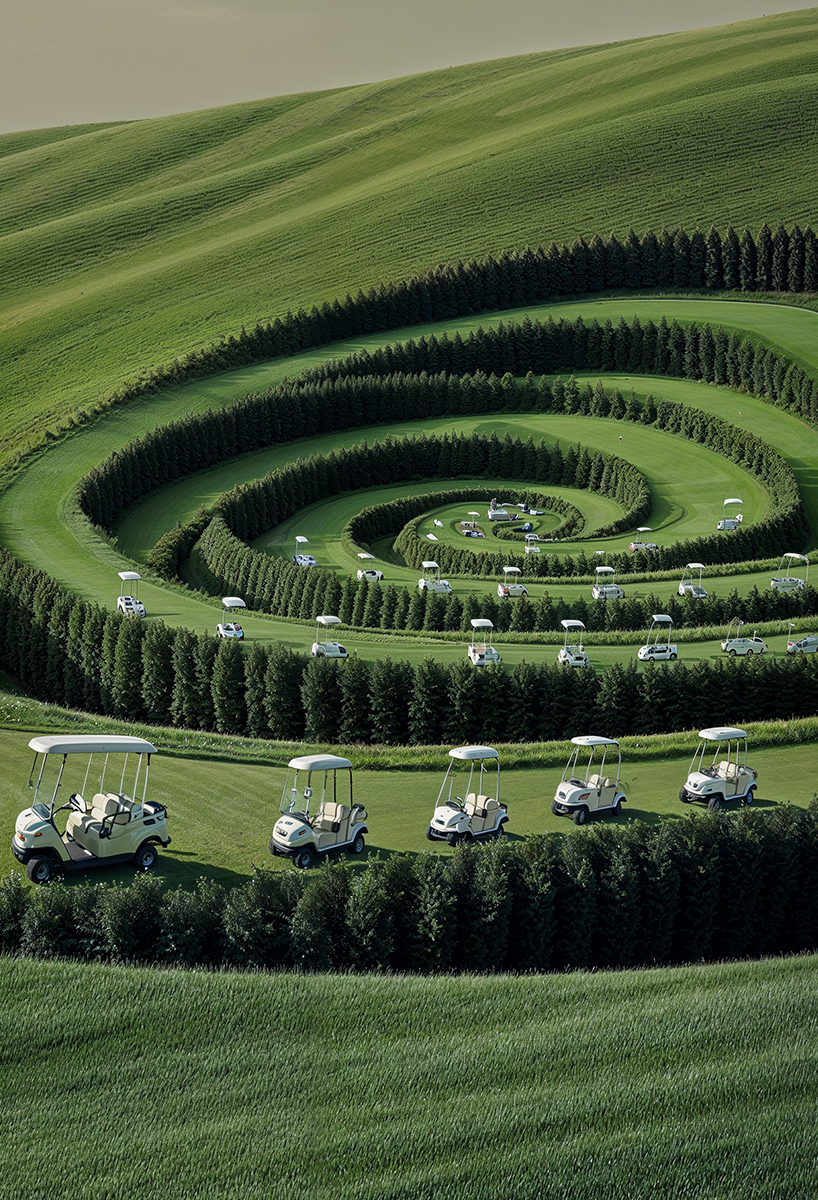
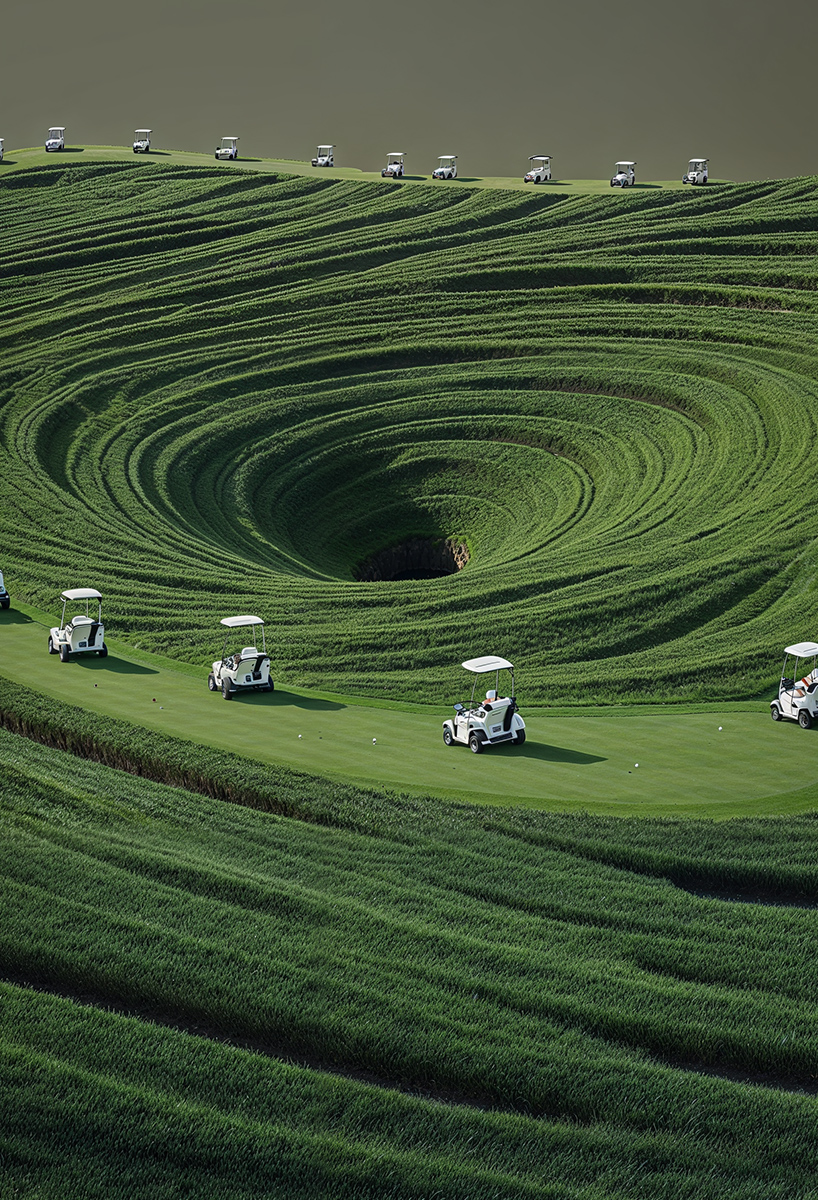
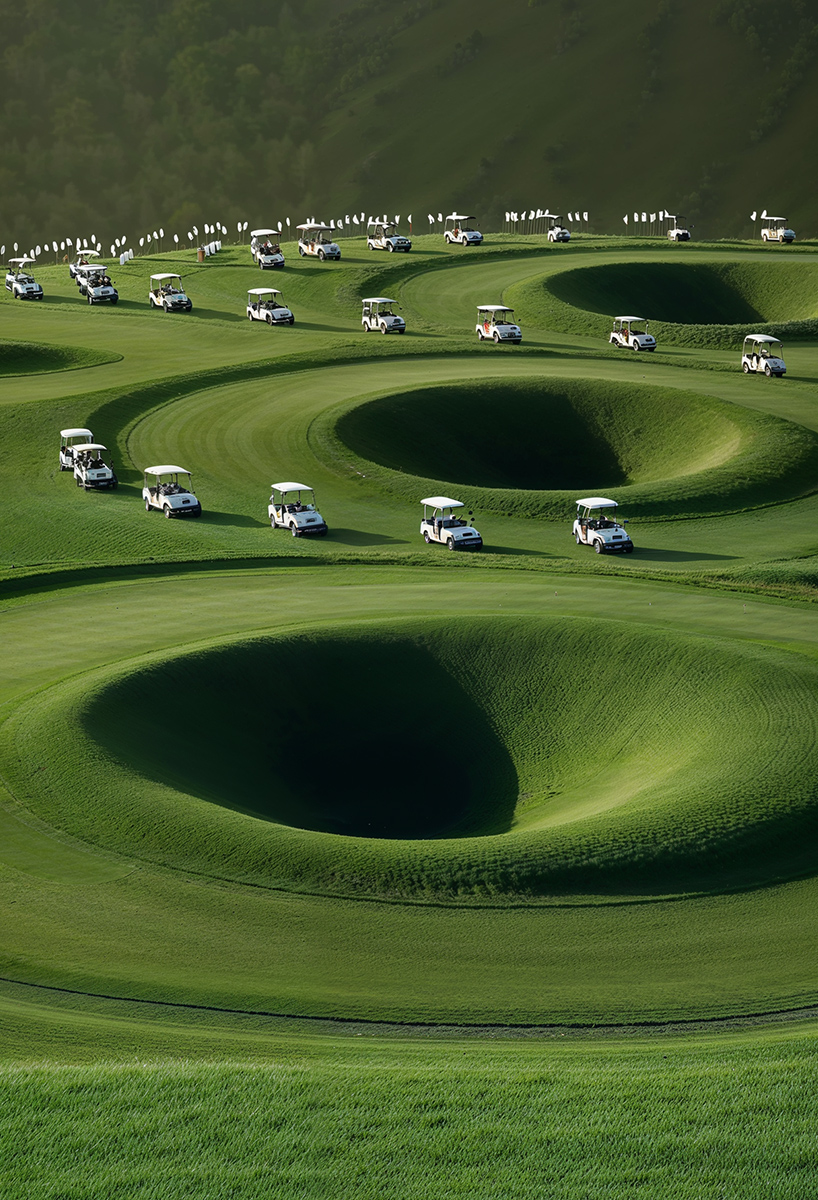
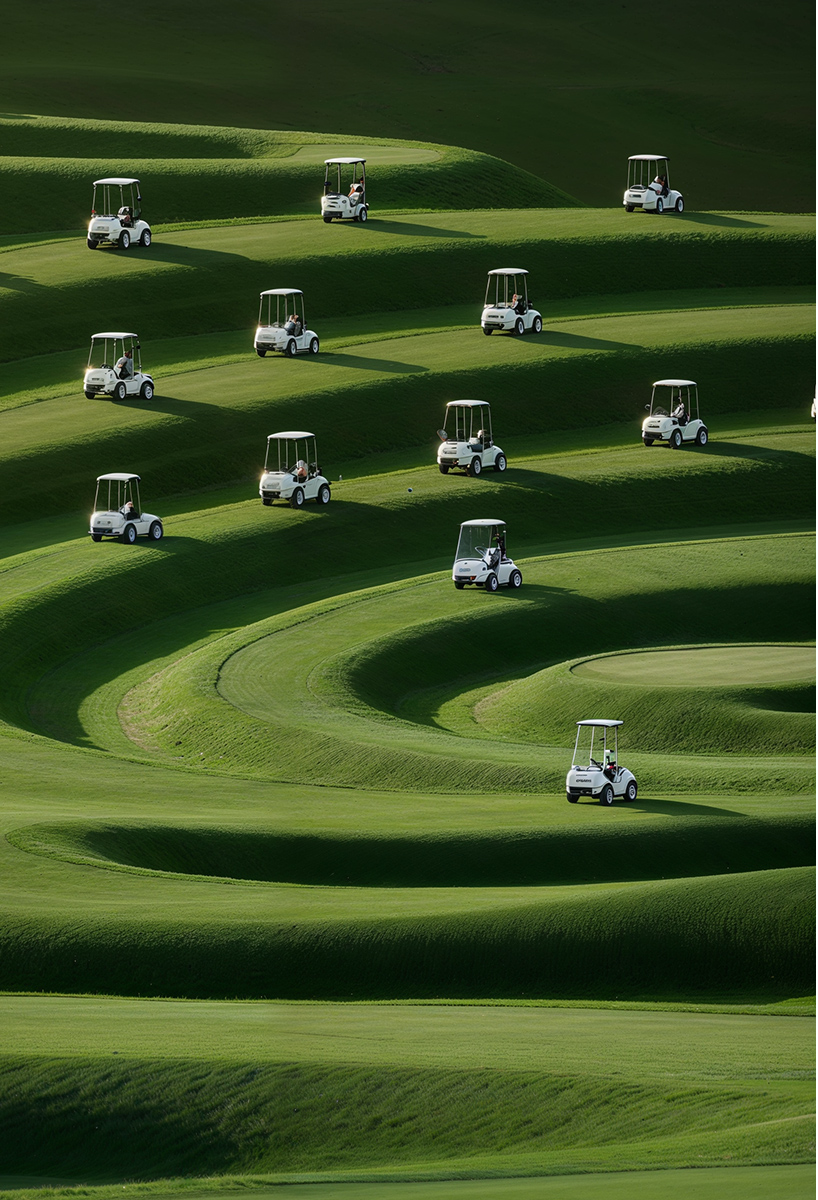
Conclusion: The Balance Between Beauty and Rebellion
In conclusion, Ulises Studio’s artwork carries an invitation to reflect on the nature of conformity and order. While the work appears to offer serene visual beauty on the surface, its content challenges the viewer to question the balance between harmony and freedom. It questions the limits of the system in which we live, highlighting repetition and system that are central to Ulises Studio’s artistic approach.



